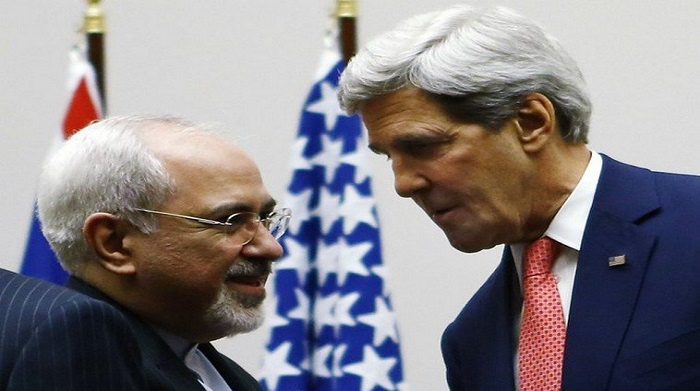The Nature and Legal Impact of Kerry’s Letter

In international law, countries make legally binding commitments through several methods. One of them, which the majority of people are familiar with, is signing treaties or joining international conventions. Another method – which is not usually discussed in unprofessional media – is “unilateral declarations”. In fact, unilateral declarations are “promises” which an official openly declares on behalf of a government addressed to a special person or the entire international community aimed at creating a “commitment” about his future actions.
Naturally, such promises which have these characteristics – according to the International Court of Justice (with regard to France’s nuclear tests in 1974) and approved by the “International Laws Commission” (in its 2006 report) – are legally binding for the country which makes them; and naturally, a promise made with such characteristics cannot easily be cancelled or taken back; and its violation would have legal consequences in the international scene. It should be pointed out that some of these unilateral declarations have had special roles and impacts on the contemporary history of international relations. France’s unilateral declaration based on halting atmosphere nuclear tests over the Pacific Ocean in 1974 (which was issued in a letter from the President’s office …), Egypt’s unilateral declaration with regard to the Suez Canal in 1975 or the unilateral declaration of “permanent neutrality” of Austria at the end of WWII – all of which had considerable legal impacts – are all examples of this method.
Now, with this introduction, the recent letter written by John Kerry addressed to Dr. Zarif based on the US’ commitment to the JCPOA and his promise to adapt the implementation of the “visa reform law” with the nuclear agreement must be evaluated within the framework of “unilateral declarations”. In fact, John Kerry’s letter has all the characteristics – in form and context – of a “binding unilateral declaration”, as is described in the Hague Tribunal and International Laws Commission. It means that this letter is openly written by an official (US Secretary of State) to the representative of another country with the intention and promise of a commitment about the future actions of the US. Thus, this letter is a binding unilateral declaration which, if needed, could be used by Iran’s Foreign Ministry at different junctures of the implementation of the JCPOA in order to safeguard the legal and political interests of Iran. Furthermore, this letter has, at least, two other important impacts:
1- In this letter, the US Secretary of State says to his Iranian counterpart, “I would like to address to His Excellency that, and stress that, according to the Joint Plan of Action, we are fully committed to the lifting of sanctions. Based on the agreements, we remain committed to the complete implementation of our commitments.”
In fact, by expressing these sentences within the framework of a unilateral declaration, the US Secretary of State has practically downgraded the interpretation of “political commitment”, which is usually used by US officials about the JCPOA and highlights the “legal” aspect of this international agreement. Considering the status of the author and the process of official letters, it is certain that writing these sentences in the beginning of an official letter goes beyond “political rhetoric”. This is while calling the JCPOA an agreement in a letter between two governments is certainly not a simple incident and void of legal impacts.
2- In this letter, John Kerry writes, “I am also certain that the new changes for visas which have been adopted in the Congress, and whose implementation the administration has the authority to stop, will not prevent us from implementing our commitments according to the JCPOA and we will implement these changes in a manner which would not create any obstacles for Iran’s legitimate economic interests.”
Here, the US Secretary of State practically promises that the US administration gives priority to the implementation of the JCPOA over a law which might contradict it. While Mr. Kerry expresses his commitment to neutralize the negative effects of the visa law, he raises the status of the JCPOA to the level of a treaty which is called Supreme Law of the Land in the US Constitution and which is superior to other internal laws; thus giving a signal to Iran that, from now on, the US administration will give priority to the JCPOA against similar laws of the Congress.
In conclusion, the significance of this letter must not be ignored or its impact and nature must not be intentionally reduced to the level of a normal letter. From a legal aspect, it is to the benefit of Iran that the letter of the US Secretary of State addressed to Mr. Zarif be recognized in international circles as a “binding unilateral declaration” which creates serious and considerable commitments for the US against the present and future obstacles of the Congress. The critics of Iran’s government must attempt to strengthen this interpretation of the letter instead of making efforts to stop the implementation of the JCPOA with the excuse of the adoption of the law of visa reform.

